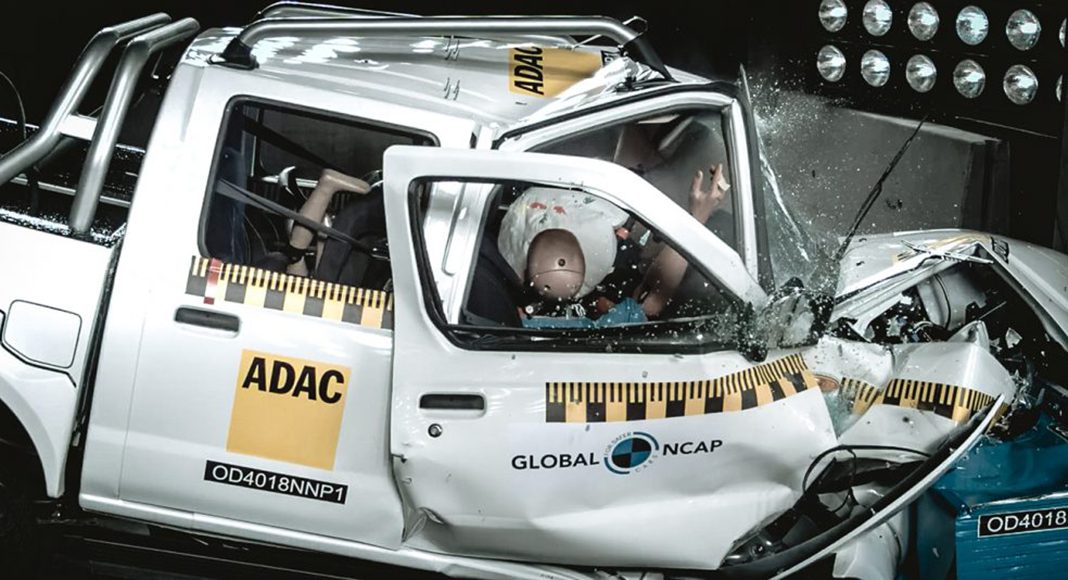Global NCAP and AA South Africa are calling for urgent action to prevent the sale of zero star cars like the Nissan NP300 “Hardbody”.
The latest crash test results in the #SaferCarsForAfrica campaign, released by Global NCAP and AA South Africa, reveal that the Nissan NP300’s structure collapsed and was found to be unstable during the test. The bodyshell was found to be so unstable that the airbags were ineffective. The high forces placed on the crash test dummy pose a significant risk of fatal injury.
“The zero star result of the NP300 is particularly troubling as the car is fitted with dual airbags and this might encourage consumers to believe that the car has a good level of safety,” said David Ward, Global NCAP Secretary General. “Indeed, Nissan misleadingly claims that the car occupants are protected by a so-called ‘Safety Shield’ and its ‘Hardbody’ label also conveys an image of strength. However, in our crash test, the car’s bodyshell collapsed and neither the steering column nor the airbags acted as they should to minimise risk of injury.”
Ward and AA South Africa CEO, Collins Khumalo, have written to the UN Economic Commission for Africa and the African Development Bank, calling for urgent action by African governments to prevent the sale of zero star cars like the Nissan NP300.
“In our view remedial action to strengthen the NP300’s bodyshell is now urgently needed,” said Ward. “This is a concern not just in South Africa but elsewhere as Nissan has plans to increase exports of this vehicle across Africa.
“We believe action should be taken now to prevent the sale of zero star cars like the Nissan NP300 anywhere in Africa.”
The NP300 achieved a zero star rating for its poor adult occupant protection mainly in the driver head and chest areas in the frontal crash test at 64km/h. The high probability of life threatening injuries to the driver’s head and chest resulted in the zero star adult occupant protection rating.
The NP300 achieved two stars for child occupant protection, with Global NCAP and AA South Africa saying the low result is mainly explained by the decision of the car manufacturer to install one of the child seats without following child seat manufacturer instructions.
“These results are outrageous and show unsafe vehicles are being sold to the people of Africa, which no manufacturer would consider selling in other markets,” said Khumalo. “Aiming to meet or exceed minimum standards is not the same as making vehicles with acceptable safety standards, and manufacturers know this. These standards must change, and we need urgent intervention from policy makers to make this happen.”



















